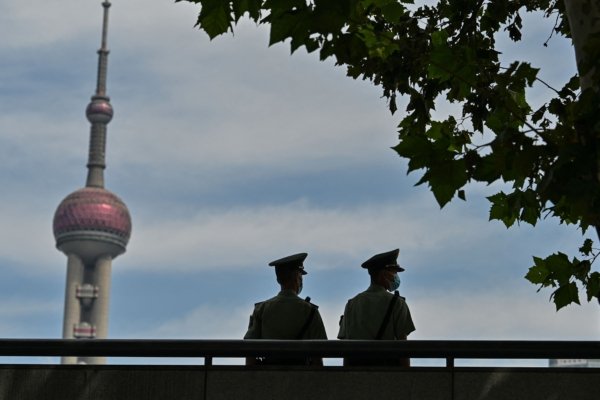Amidst the downturn in the real estate industry and the overall economic decline, the Chinese Communist Party (CCP) is facing financial difficulties. In order to fill the fiscal gaps, the government is urgently seeking ways to generate revenue, including demanding that wealthy individuals and companies thoroughly check for unpaid taxes. Foreign media believe that this move could further weaken investors’ confidence in China.
According to a report by the Financial Times on November 4th, in recent months, tax officials in China have been requiring wealthy individuals and companies to conduct a “self-inspection” of their tax situations and to pay any outstanding taxes. This action is taken as local governments are striving to raise revenue to compensate for depleted coffers due to the sluggish real estate market.
At a time when the Chinese economy failed to meet official targets in the third quarter, the introduction of this measure in Beijing raises concerns among China’s wealthy individuals, especially those in cities like Shanghai and Shenzhen, causing unease and even “fear,” as reported by a tax partner based in China to the Financial Times.
“Some of them have no idea what to declare when asked to conduct self-inspection,” the tax partner said. “Many were not aware before that their overseas personal income should be taxed in China.”
Bloomberg previously reported that, in response to Chinese President Xi Jinping’s call for “common prosperity,” tax authorities in China have been summoning wealthy individuals in recent months, while others have been asked to conduct self-assessments. According to sources, some of those contacted possess at least $10 million in overseas assets, while others are shareholders of Hong Kong and U.S. listed companies. They may face up to a 20% tax on investment gains, with penalties for late payments.
A notification seen by the Financial Times in a certain city showed that companies which found no issues during self-inspection were required to submit stamped proofs and to “retain evidence for inspection.”
Informants mentioned to the Financial Times that authorities are also asking individuals to start paying overdue taxes, including taxes on their personal overseas investment income, in some cases relying on legal provisions rarely used since 2019.
A lawyer mentioned that his wealthy Chinese clients can negotiate with tax officials, indicating that there is some “wiggle room” in their potential tax obligations.
Kher Sheng Lee, Co-Chair for the Alternative Investment Management Association in the Asia Pacific region, told the Financial Times that Beijing’s tightened tax collection is driven by pragmatism and the current economic situation. “On the other hand, if the crackdown intensifies, it could shake (enterprise and) investor confidence,” he said.
China’s real estate market has experienced three years of sluggishness, impacting local government finances and denting the confidence of households and investors.
Revenue from land sales is one of the government’s primary income sources. In the first nine months of this year, this revenue dropped by nearly 25% compared to the same period last year. National tax revenue dropped by 5.3% during the same period. According to official CCP data, China’s total fiscal income from January to September this year decreased by 2.2% compared to the same period last year.
The implementation of taxing overseas investment income of wealthy individuals and companies by the CCP highlights the government’s urgency to expand revenue sources, especially in the face of depleted land sales and half-empty skyscrapers. Additionally, both the central and local governments in a financial crisis have significantly increased fines and penalties on the private sector to boost revenue.
“Clearly, local governments are out of money,” said a senior executive at a medium-sized manufacturing company in Suzhou to the Financial Times. He added that local governments often impose hefty fines on companies in his region.
First Financial reported that fines and confiscation income in 7 out of 16 provinces grew significantly last year, with Chongqing and Beijing seeing increases of 22.4% and 21.9% respectively. Many local governments have stopped releasing records of fines.
Boston Consulting Group estimated in 2018 that out of China’s $24 trillion personal wealth, around $1 trillion is held overseas. According to United Nations data, the number of wealthy Chinese citizens emigrating has also surged, with over 1.2 million people leaving China since 2021.

